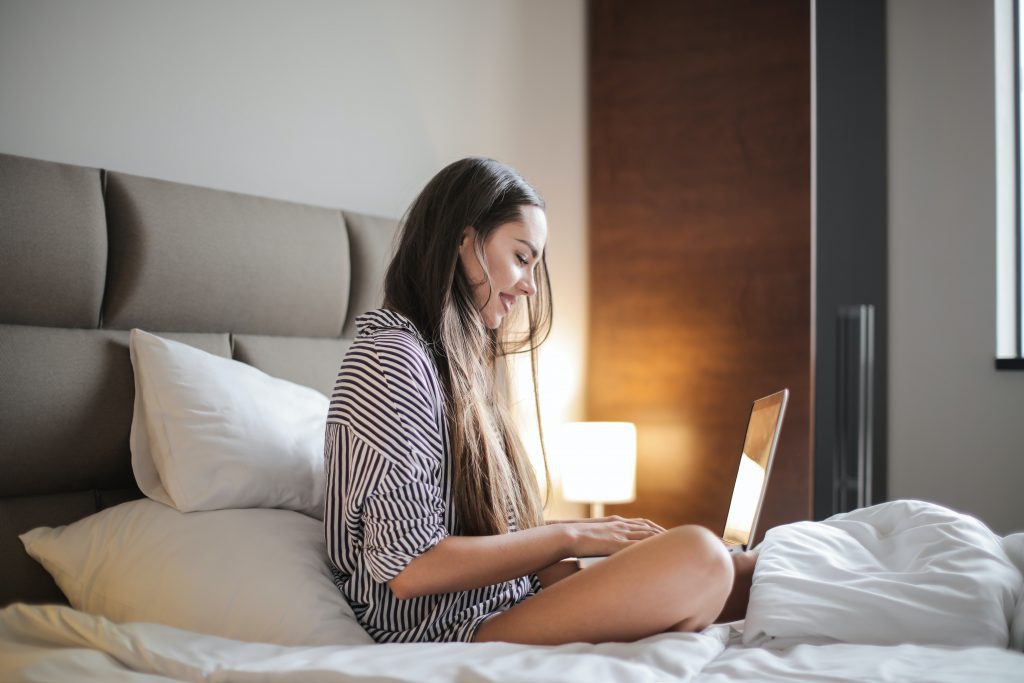In a survey of 2,000 American respondents, it’s no surprise then that seven in ten of those polled say they much prefer working from home than heading into the office every day.
The survey from Mattress Firm, conducted by OnePoll, found that even though the respondents live where they work, 44 percent say they’ve still been “late” to clock in and six in ten say they have taken a nap during the day.
But is the flexibility that working from home offers employees bad for productivity, considering all the distractions?
Based on the survey results, no. In fact, the opposite is true.
Nearly three-quarters of the respondents (70%) say they’ve been more productive since working from home than they were in the office. Maybe naps are helping to boost productivity.
According to Dr. Sujay Kansagra, sleep health consultant for Mattress Firm, “napping may help improve mental agility, memory and alertness. A nap as short as 20 minutes can help rejuvenate you for the rest of the day and give you the boost you need to perform your best.”
And working from home offers all sorts of places to call your workstation — including your bed.
More than half of those surveyed said they’ve napped on the clock (59%) or “worked from bed” (57%) and that it made them realize they need a new bed (52%).
And of those who have swapped their desk for their bed, respondents say close to four hours of their workday was spent there — that’s nearly half the workweek.
“Our bed tends to be a place of comfort and familiarity, especially during times of uncertainty or anxiety, so it’s completely understandable to want to work from bed,” said Kansagra. “But it’s important to remember your bedroom should be your sleep sanctuary and should be kept separate from your workspace,” he added.
The COVID-19 pandemic has many of us working remotely, but it’s also changed our lives in other ways, most notably coping with feelings of stress, isolation and anxiety. The survey results show Americans are still trying to adjust and deal with these emotions.
“If you find yourself thinking excessively about the pandemic, it’s important to find time and space to decompress. Restful sleep allows our brains and bodies to relax after a tough day and having a comfortable mattress and sleeping environment is a vital part of sleep hygiene. This is even more important during times of stress, as stress can take both a mental and physical toll. Also, try your best to maintain a similar schedule each day, and try to keep the day as normal as possible despite all the changes,” Dr. Kansagra said.
Social distancing during the pandemic may have limited face to face interactions but creating a sense of normalcy for some seems to include taking the time for self-care or virtually interacting with family and friends.
Which is why, according to the poll, one in three Americans surveyed have taken it upon themselves to cut their own hair or give themselves a manicure.
And 63 percent of respondents say they’ve socialized via a video application, with 23 percent saying they do so five times per week.
The top ways to deal with anxious feelings were found to be exercising (55%), watching TV and movies (51%), meditating (42%), and sleeping more (39%).
TOP 10 WAYS TO DEAL WITH ANXIOUS FEELINGS DURING THE QUARANTINE
- Exercising 55%
- Watching TV/movies 51%
- Meditating 42%
- Sleeping more 39%
- Cooking 36%
- Reading 36%
- Eating 36%
- Playing video games 34%
- Talking to friends on the phone/video 34%
- Spending time on my hobbies 32%
